Planning a trip to Thailand? The Land of Smiles welcomes tourists, but it’s crucial to be cautious about pseudo-sanctuaries and participating in elephant rides. Explore our list of 10 reasons to avoid these cruel attractions, especially if tempted to ride an elephant around Chiang Mai. Your conscious choice can contribute to the protection of these majestic animals and help you travel with a clear conscience.
Table of Contents
1. Elephants Are Not Naturally Built to Carry Heavy Burdens, Especially in Elephant Rides
Elephants are not naturally equipped to bear heavy loads, particularly tourists, for prolonged periods, especially when subjected to activities like riding an elephant. Exploring the adverse effects of elephant rides in Thailand is crucial.
Such activities can result in lasting spine injuries and other health issues. The elephant’s spine, with its sharp bony ridges, is sensitive to excessive weight, exacerbated by uncomfortable seats known as “howdahs” attached during rides, causing hazardous blisters and abrasions.
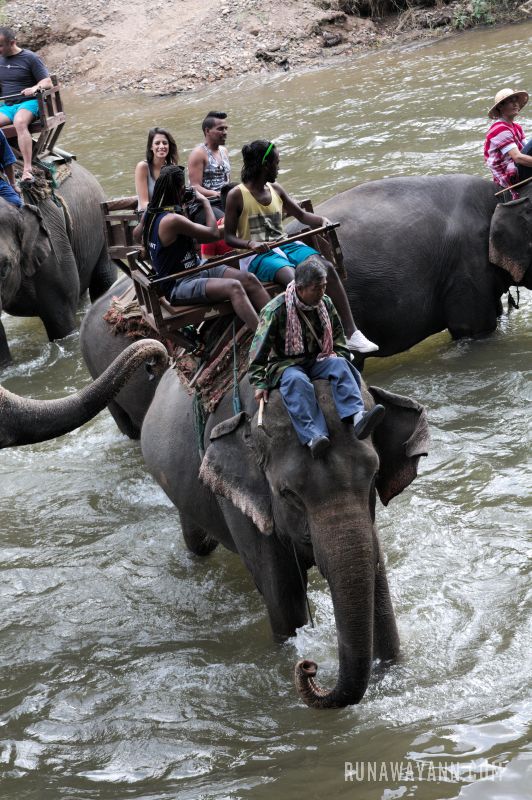
2. Baby Elephants Endure Torment Through the Brutal Practice of Phajaan
Reconsider riding an elephant in Thailand. In a previous post, we delved into the cruel practice of “phajaan”, a ritual involving separating baby elephants from their mothers, confining them in cramped cages, and subjecting them to torture until submission.
While some elephant camps have embraced more ethical practices, there are still places perpetuating this abuse. Hence, we strongly advise against attractions involving elephant rides to protect these majestic animals. For ethical sanctuaries supporting elephants, consult this recommended list.
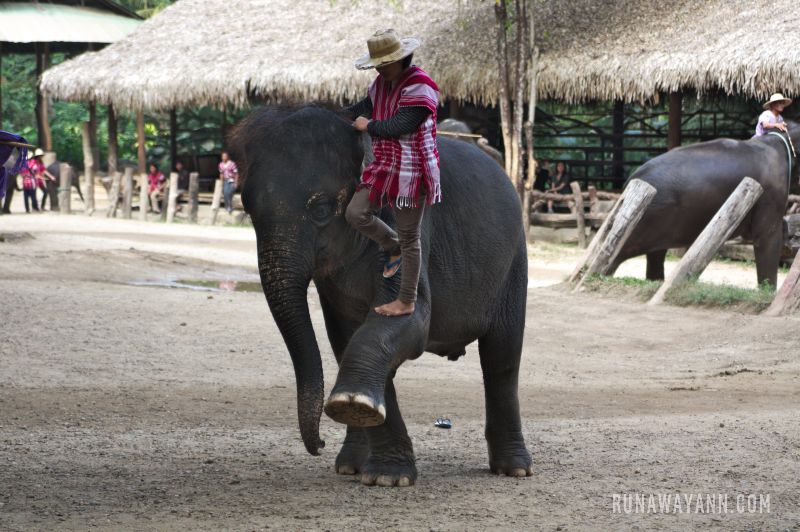
3. Mahouts Resort to Cruel Measures, Employing Sharp Tools for Control, Particularly in Elephant Rides
While riding elephants may appear entertaining, the reality is starkly different. During our visit to Chiang Mai, we witnessed the distressing and abusive treatment of elephants in one of the makeshift camps. A hapless elephant was coerced into obedience using a sharp metal hook, a common tool used to discipline elephants, even baby ones, during tourist rides to maintain a specific pace set by the mahout.
Unfortunately, such inhumane practices persist, and predicting the treatment an elephant receives during a ride is uncertain. In addition to metal hooks, more advanced tools such as electric shocks are employed. Refrain from supporting this cruelty by choosing not to ride elephants. Opt instead for ethical sanctuaries where these magnificent creatures are treated with the respect and care they deserve.
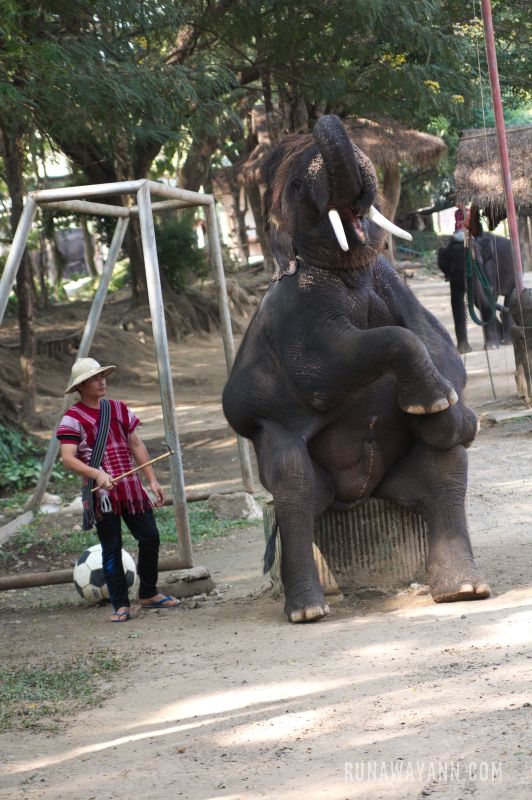
4. Illegally Transporting Elephants for Elephant Rides Poses a Significant Risk
The illegal trafficking of elephants significantly contributes to the endangerment of Asian elephants, pushing them towards the brink of extinction. Alarmingly, numerous elephants utilized in Thailand’s tourism sector are unlawfully transported from neighboring countries such as Burma, where they once roamed freely in the wild.
This inhumane practice not only jeopardizes the survival of these majestic creatures but also sustains the unethical operations of elephant camps. Do not ignore this issue; instead, opt to endorse ethical sanctuaries that advocate for responsible and sustainable tourism, ensuring the well-being of elephants is prioritized.
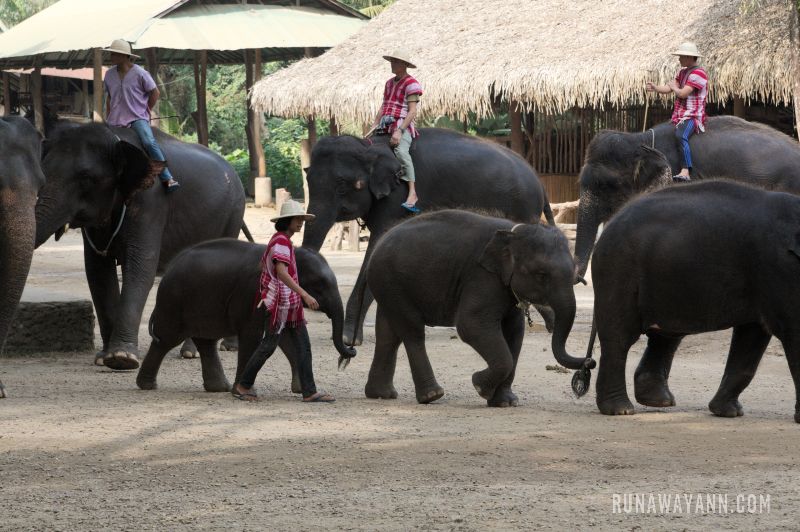
5. Elephants Endure Harsh Conditions in Numerous Camps
Contrary to assurances of sanctuary and care, many self-proclaimed elephant camps subject these majestic creatures to appalling conditions. Following strenuous rides with large groups of tourists, the elephants are frequently tethered and restricted to cramped enclosures, lacking adequate space to move.
Shockingly, a considerable number of these animals suffer from dehydration, malnutrition, and subpar food quality. Do not overlook this issue; advocate for responsible and sustainable elephant tourism that prioritizes the well-being of these intelligent animals.
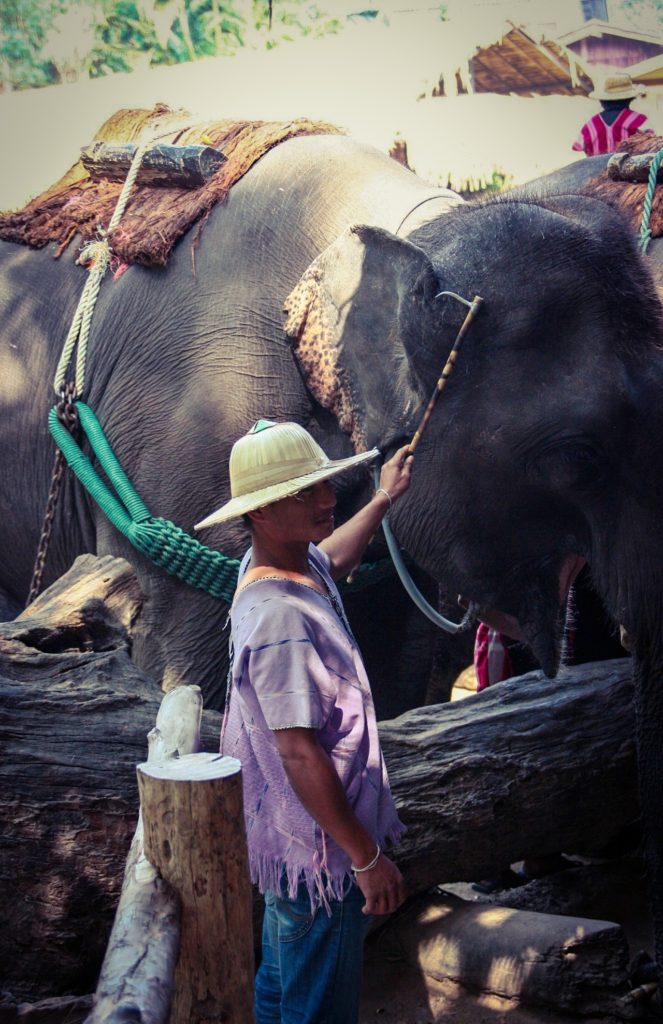

6. Elephants in Camps Are Forced to Exceed Their Physical Limits
The challenges faced by elephants in tourist camps extend beyond confinement and mistreatment. Astonishingly, numerous elephants endure arduous work schedules that far surpass their physical capacities. Despite their intelligence and sensitivity, these majestic animals are compelled to toil for up to 14 hours a day, seven days a week, carrying tourists on their backs.
This relentless labor exacts a considerable toll on their health, resulting in infections, injuries, and premature death. It is imperative to halt this abusive practice and endorse responsible tourism that prioritizes the well-being of these magnificent creatures.
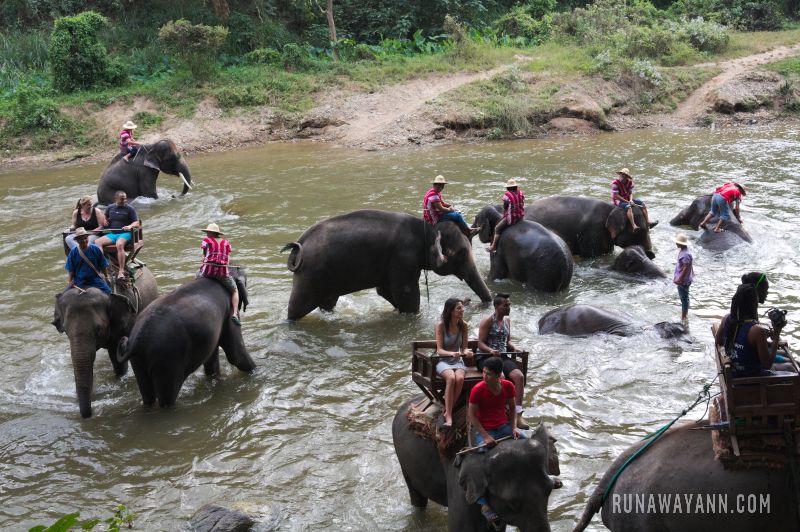

7. Elephants Are Social Animals and Experience Loneliness in Captivity
Elephants, highly social creatures, require regular interaction with their peers to thrive. Sadly, many elephants in camps spend the majority of their day separated from others and endure solitary confinement after their “work.” This inhumane practice significantly affects their mental well-being, leading to conditions such as depression, anxiety, and other behavioral problems.
It’s vital to recognize that elephants are intelligent beings capable of experiencing pain and suffering, similar to humans. Let’s bring an end to their senseless exploitation in the name of tourism and advocate for ethical alternatives that prioritize their overall well-being.
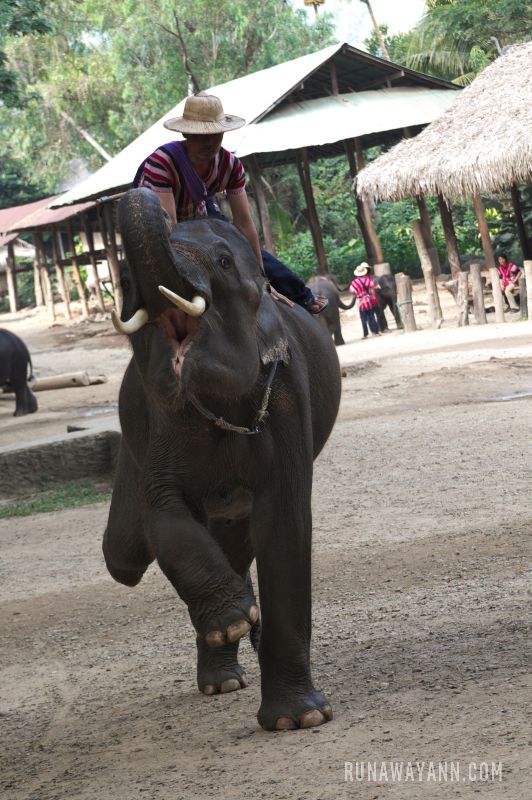

8. Tourists Overfeed Elephants, Negatively Impacting Their Health
Another concerning aspect observed in elephant camps is the tendency for tourists to overfeed the elephants. Many tourists are provided the chance to “reward” their elephants with bananas or sugar cane, typically for an additional fee. However, complications arise when each elephant is repeatedly fed these unhealthy treats multiple times daily by every tourist who rides them.
This overfeeding poses a risk of serious health issues for the elephants, given that their diet significantly influences their overall well-being. Excessive consumption of high-sugar treats can be detrimental to these animals.
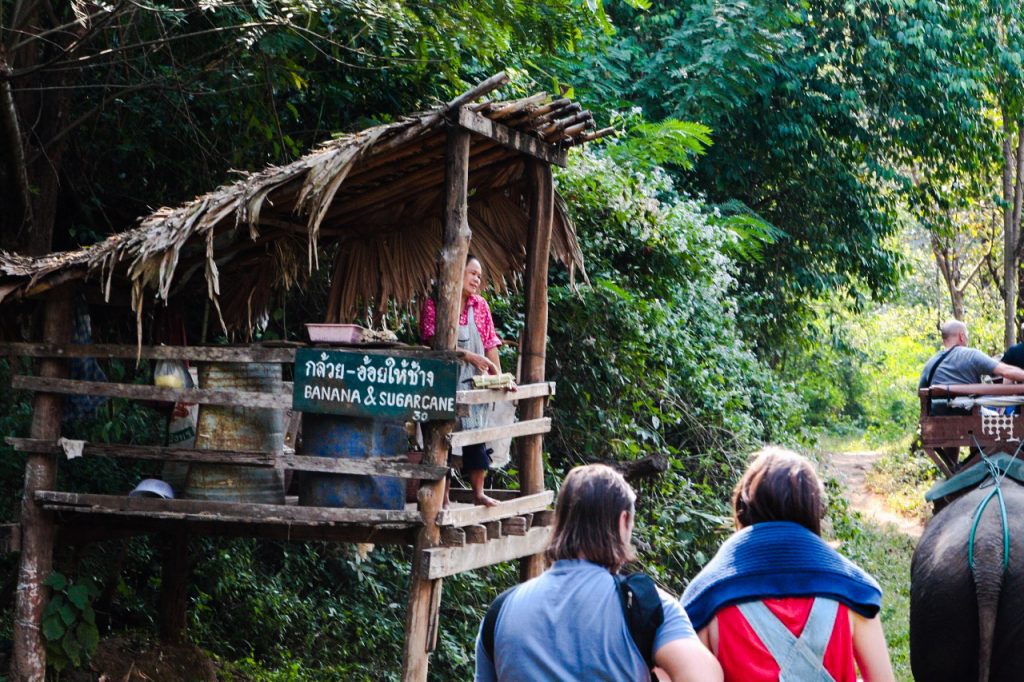

9. Elephants Are Left to Perish in the Jungle Due to Age or Illness
A heart-wrenching outcome of elephant tourism is the abandonment of elderly and ailing elephants in the jungle. These gentle giants, having spent their lives carrying tourists, are left to succumb in the wild without any chance of survival.
Once these animals can no longer generate profits for their owners, they are callously discarded after a lifetime of service. This practice serves as a tragic reminder of the exploitation and cruelty endured by these magnificent creatures in the tourism industry.
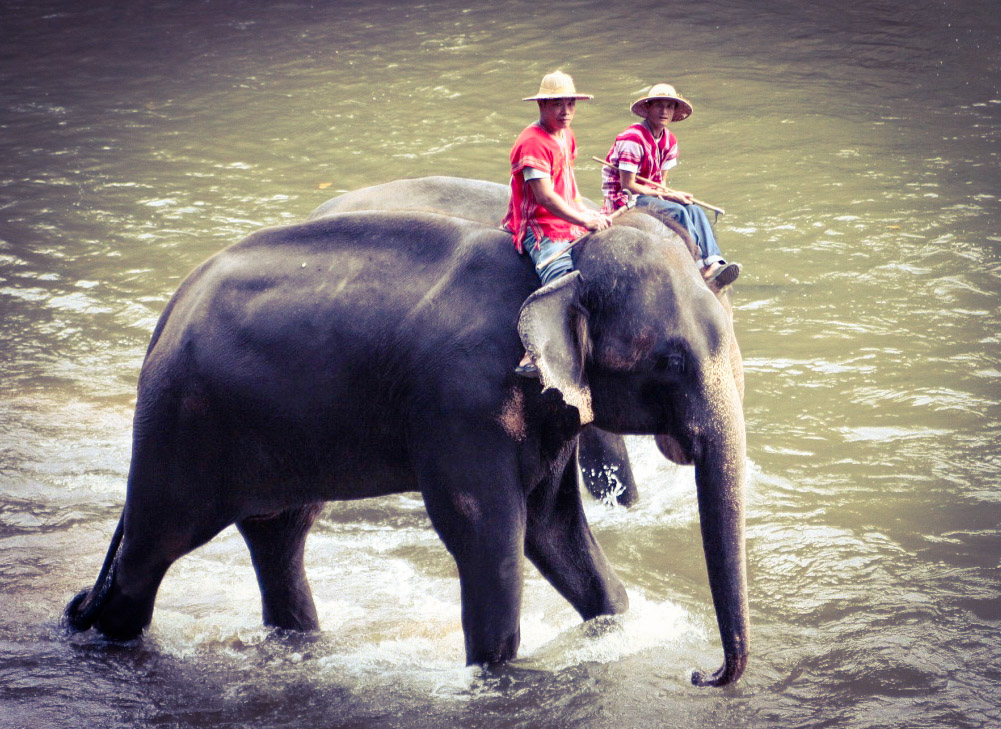

10. The Elephant Rides Aren’t Worth the Expense
Elephant riding not only harms the animals but is also a comparatively pricey “attraction.” In Thailand, an elephant ride can cost up to 1500 baht per person, surpassing the cost of delightful street food or modest accommodation in the area.
Given the harm inflicted on the elephants and the associated expense, it is unequivocally not worth the money.
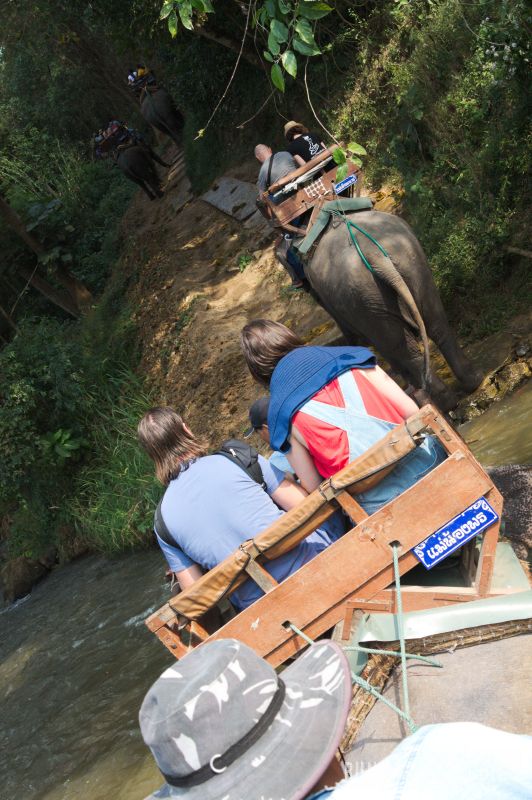

Summary
Riding elephants in Asia may seem like a fun and unique experience, but it comes at a great cost to the welfare of these majestic animals.
In this post, we have highlighted some of the most important reasons why you should avoid elephant rides and tours, including the illegal and cruel treatment of elephants, poor living conditions, overworking and unhealthy feeding practices.
We hope that by sharing these reasons, we can raise awareness about the negative impacts of elephant tourism and encourage responsible and ethical travel practices.


I would love to visit Thailand someday and see the elephants in their native habitat. I would never ride one though for all the reasons listed. They are such smart and amazing creatures I’d hate to see them resigned to that!
Elephants are indeed very intelligent. I’ve heard stories that they have extremely good memory so they can remember things for entire life!
This is a great article! It always hurt me to see people on elephants. I never thought it was something I wanted to experience. I don’t even really visit any zoos when travelling. If I were to do an excursion involving animals, it would have to be a safari where I’m still away from the animals and hopefully not distrubing them for too long. Thanks for sharing x
http://www.lynnmumbingmejia.com
I would love to go to safari to see the “big 5” of african animals in their natural habitat 🙂
I love this post! I absolutely adore elephants and it makes me cry every time I see people riding them on my travels 🙁 It breaks my heart.
Did you visit a true ethical sanctuary in Chiang Mai? I’ve been researching and Elephant Nature Park in Chiang Mai rescue elephants who are old and sick and bring them back to health. They have a ‘saddle off’ initiative to educate others of the affects of riding elephants. I’ve followed them for a while but I want to make sure that they are truly ethical before visiting.
Unfortunatelly when we’ve been in Thailand few years back we haven’t been educated well on that topic and we’ve chosen other. Once we’ve seen how they treat them in “bad” camp I’ve decided to write about it, so other’s can make informed decision.
In this post: https://runawayann.com/en/blog/2017/04/11/chiang-mai-elephants-rafting-and-night-bazaar/ I’m recommending Elephant Nature Park as one of the good ones.
I have never ridden an elephant, and now I will never ride one. A great and heartfelt post. Thanks for sharing it.
I’m glad that the post was helpful 🙂